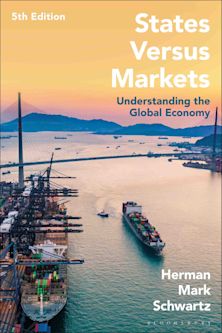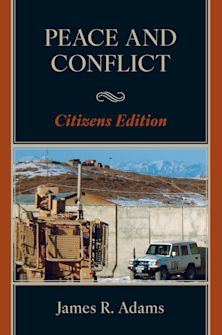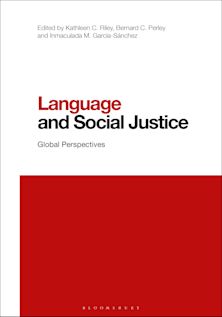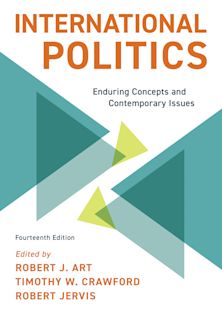- Home
- ACADEMIC
- Politics & International Relations
- Global Politics
- Erdogan's Empire
- Delivery and returns info
-
Free US delivery on orders $35 or over
You must sign in to add this item to your wishlist. Please sign in or create an account
Description
Gradually since 2003, Turkey's autocratic leader Recep Tayyip Erdogan has sought to make Turkey a great power -- in the tradition of past Turkish leaders from the late Ottoman sultans to Ataturk, the founder of modern Turkey. Here the leading authority Soner Cagaptay, author of The New Sultan -- the first biography of President Erdogan -- provides a masterful overview of the power politics in the Middle East and Turkey's place in it.
Erdogan has picked an unorthodox model in the context of recent Turkish history, attempting to cast his country as a stand-alone Middle Eastern power. In doing so Turkey has broken ranks with its traditional Western allies, including the United States and has embraced an imperial-style foreign policy which has aimed to restore Turkey's Ottoman-era reach into the Arabian Middle East and the Balkans.
Today, in addition to a domestic crackdown on dissent and journalistic freedoms, driven by Erdogan's style of governance, Turkey faces a hostile world. Ankara has nearly no friends left in the Middle East, and it faces a threat from resurgent historic adversaries: Russia and Iran. Furthermore, Turkey cannot rely on the unconditional support of its traditional Western allies. Can Erdogan deliver Turkey back to safety? What are the risks that lie ahead for him, and his country? How can Turkey truly become a great power, fulfilling a dream shared by many Turks, the sultans, Ataturk, and Erdogan himself?
Table of Contents
Chapter I - Osman's Dream
Chapter II - Restoring Turks' Dignity-as Muslims
Chapter III - “Strategic Depth”
Chapter IV - Building Soft Power
Chapter V - Europe's Slap
Chapter VI - An American Affair
Chapter VII - The Syrian Disaster
Chapter VIII - Menacing Russians
Chapter IX - Competing Persians
Chapter X - Erdogan's Arab Fall
Chapter XI - Uncomfortable Ottomans
Chapter XII - Course Correction
Chapter XIII - Erdogan vs. Trump
Chapter XIV - Erdogan's Empire Part I: East Africa
Chapter XV - Erdogan's Empire Part II: “Bayram Belt”
Chapter XVI - Turkey and the West: A Never-Ending Love Affair
Conclusion - How Can Turkey become Great?
Product details
| Published | Sep 19 2019 |
|---|---|
| Format | Hardback |
| Edition | 1st |
| Extent | 392 |
| ISBN | 9781788317399 |
| Imprint | I.B. Tauris |
| Dimensions | 9 x 5 inches |
| Publisher | Bloomsbury Publishing |
About the contributors
Reviews
-
An excellent evaluation of Turkey's imperial ambitions over the past decade and well-worthwhile reading for anyone who wants to understand what's presently going on in this important country and where it's going.
The New Arab
-
Cagaptay's book provides a comprehensive and informative review of Turkish foreign policy, covering a wide range of issues and events … As a historian, Cagaptay is particularly good at bringing up historical context and anecdotes that enrich the book. He contextualizes his discussion of foreign policy with developments in Turkish domestic politics. The outcome is a highly accessible and interesting book for anyone interested in Turkey and Erdogan as well as the international relations of the Middle East.
Middle East Journal
-
Cagaptay has authored a highly authoritative and accessible book on Turkish foreign policy.
Fathom Journal
-
Erdogan's Empire offers a sober and honest look into Erdogan's approach to foreign policy.
Journal of the Middle East and Africa
-
A concise breakdown of the forces pushing and pulling on Turkey's geopolitical landscape. His criticisms of the Turkish state and other actors are balanced. I believe Çagaptay's books merit praise for one main reason: he hasn't given up on Turkey and is still willing to make the positive case for the country in a climate where much of the coverage and commentary is negative.
Duvar English
-
Erdogan's Empire presents insightful, sharp and balanced analysis, well-researched explanations of Erdogan's rise to power and Turkey's diplomatic development through the decades. The chapters and their subheadings are easily digestible, with morsels of information that will appeal to foreign policy wonks, university students and weekend readers-a difficult balance to achieve.
International Affairs



































